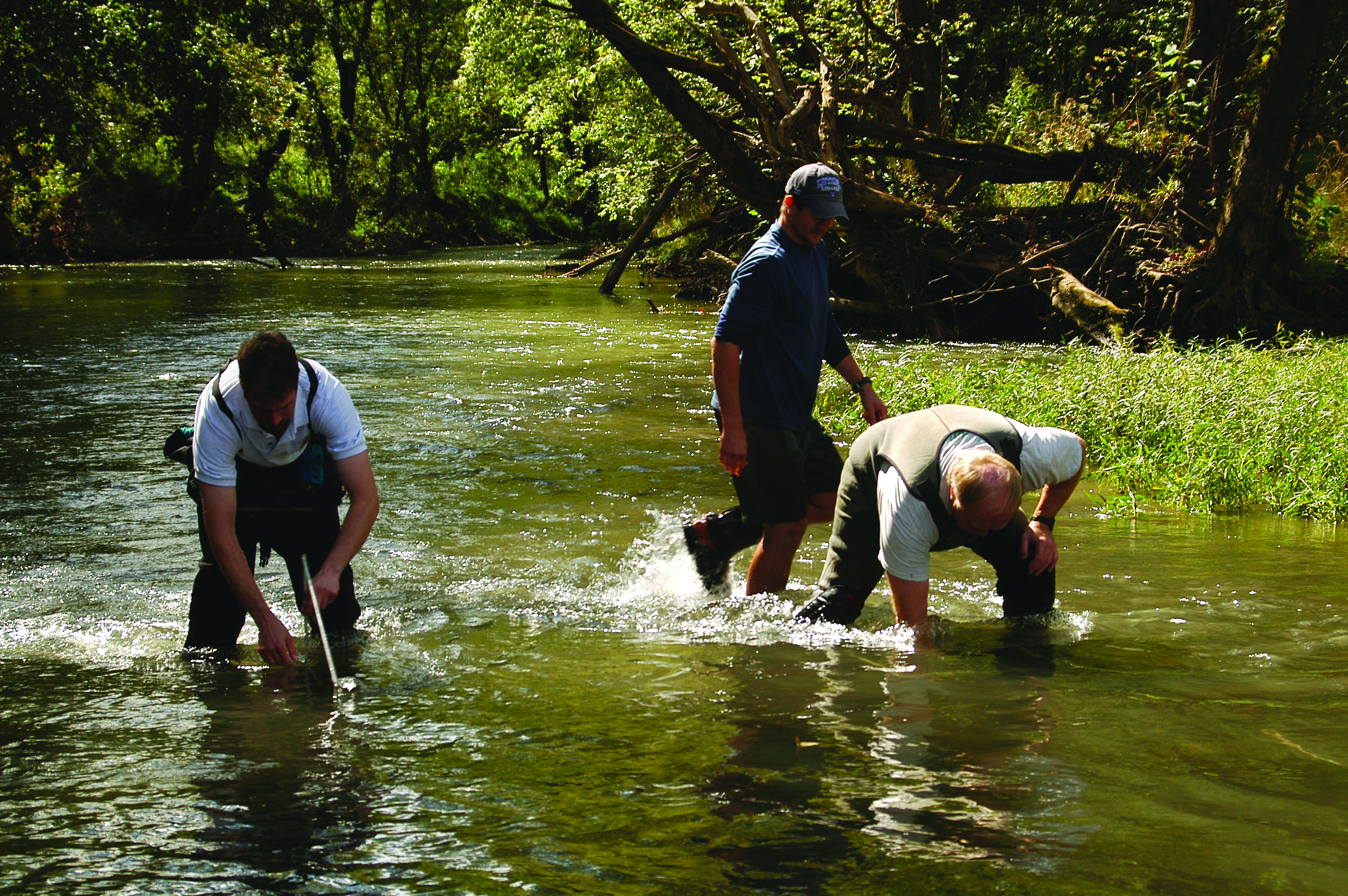Virginia Tech partners in Clinch River endangered mussel release

The Department of Fisheries and Wildlife Sciences in Virginia Tech’s College of Natural Resources and Environment, in collaboration with agency partners, will host a public demonstration day when it releases hatchery-reared endangered freshwater mussels into the Clinch River in Russell County, Va., on Wednesday, Sept. 22.
Partnering in the release of the largest reared baby mussels to date are the Virginia Department of Game and Inland Fisheries (VDGIF), Tennessee Wildlife Resources Agency, U.S. Fish and Wildlife Service, and The Nature Conservancy.
The public is invited to this event, which runs from 10 a.m. to 2 p.m. at Cleveland Islands near the town of Cleveland on Route 82, some 25 miles north of Abingdon. Interested citizens are welcome to come prepared to get wet and participate in the planting of five thousand juvenile mussels into the riverbed. Dave Whitehurst, VDGIF’s director of wildlife resources, will speak about restoration of endangered mussels at the site and the partners that have contributed to the project’s success. Parking will be at the ballpark on the south side of Route 82.
Jess Jones, U.S. Fish and Wildlife Service restoration biologist based at the College of Natural Resources and Environment under a cooperative agreement, said, “This will be the biggest release of freshwater endangered mussels grown out to 2 inches in the history of our 20-year collaborative program to cultivate endangered mussels for planting in their native waters.” The mussels were reared at VDGIF’s Aquatic Wildlife Conservation Center near Marion and Virginia Tech’s Freshwater Mollusk Conservation Center, which grow the mussels to sizes suitable for stocking in rivers.
Virginia Tech Professor Emeritus Dick Neves, who helped pioneer the program that is now serving as a model across the United States and will be participating at the event, noted, “We have made huge advancements since our start 20 years ago.” Much of the research to propagate freshwater mussels was conducted at Virginia Tech’s facility, which was established in 1990.
Native freshwater mussels naturally filter river water, help hold river gravel in place, and improve habitat conditions for fish. “However,” Jones explained, “populations of native mussels have declined across the country in the past 100 years due to habitat loss and degradation of rivers and lakes. Construction of dams, excessive sedimentation, and severe pollution of waterways have caused plants and animals to disappear from rivers.”
The Clean Water Act of 1972, Endangered Species Act of 1973, and Surface Mining Control and Reclamation Act of 1977 have helped reduce those impacts, so that disturbed river ecosystems are gradually healing and showing signs of improved water quality and habitats. “The species that once were lost can now be returned to the places they originally inhabited,” Jones pointed out. “We have been growing the endangered species at the VDGIF and Virginia Tech facilities to replenish the rivers.”
Federal and state agencies have identified the Clinch River in southwestern Virginia as a key candidate for restoration. Globally significant to the conservation of mussel resources, the Clinch has a 12-mile stretch that is being targeted for planting the federally endangered oyster mussel and Cumberlandian combshell. Cleveland Islands and adjacent lands, which are owned by The Nature Conservancy, lie in this section of the river.
“The VDGIF and partners surveyed the mussel species in these waters in 2002 and 2008 and found that the Cleveland Islands afford one of the best opportunities in the Tennessee River Valley to restore populations of native mussels,” Jones stated. “The water quality and habitat is now stable enough that we are confident that environmental conditions are suitable to allow the propagated juveniles and translocated adults we plant there to survive and help build up the mussel populations.”
Hatchery-reared and translocated mussels give biologists a way to boost up mussel populations and help endangered species recover from the brink of extinction. The translocated adults were collected from the Tennessee section of the Clinch River, where both endangered mussel species are thriving. “In addition to the two endangered species, we will also be releasing four non-endangered species,” Jones said.




